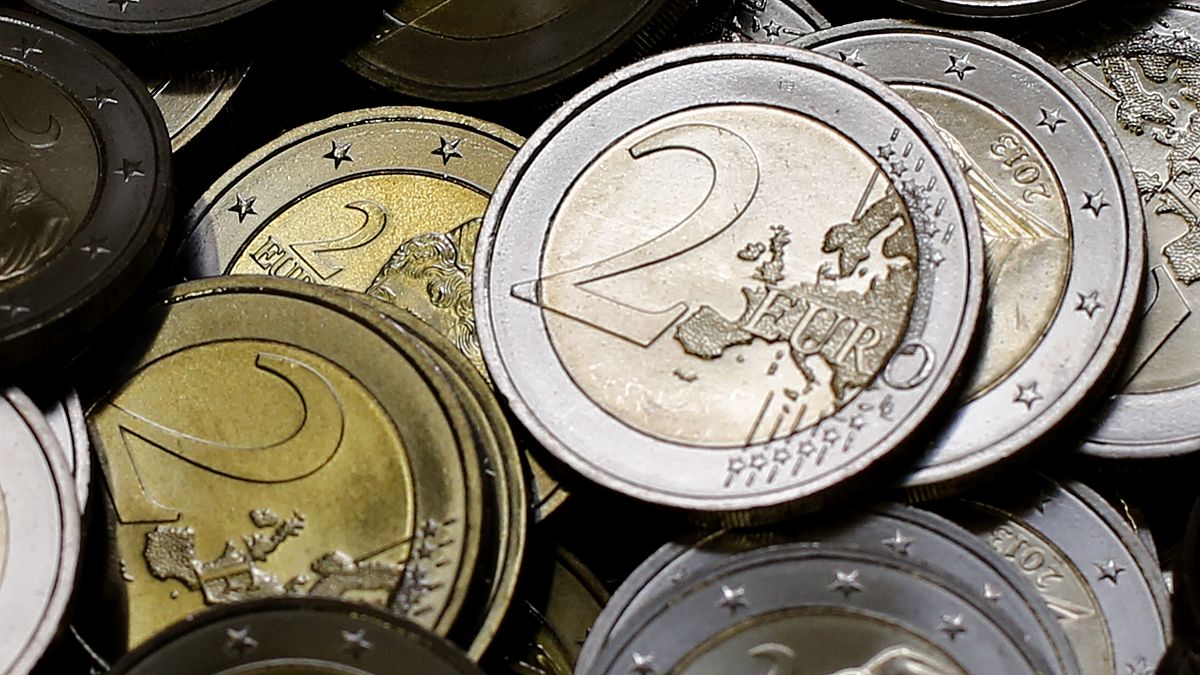EU co-founders Italy and three eastern European countries are among the worst at spending billions of infrastructure funds from Brussels, it can be revealed.
Data obtained by euronews shows up to 88 billion euros is at risk of being lost because of alleged corruption, government instability and lack of ‘institutional capacity’.
Romania spent just 53.9 percent of EU structural funds (it was handed around 19.2 billion euros) for the 2007-2013 period, according to statistics from the European Commission. But experts say Bucharest, who joined the EU in 2007, is getting better at making use of Brussels cash, designed to slash economic disparities between states.
Slovakia and the Czech Republic, two other relative newcomers to the Brussels table, also fared badly, spending 56.3 percent and 61.3 of their allocated funds respectively.
Yet Italy, one of the EU’s founding fathers, cannot claim they are too new to know how to best spend Brussel’s billions. Figures show Rome successfully spent just 61.9 percent of its 28 billion allocation for the 2007-2013 period.
who is eu’s worst at spending BRUSSELS’ BILLIONS? |Create infographics
A European Commission spokeswoman said EU countries, with the exception of the newest state Croatia, had until the end of 2015 to spend the money.
Dr Ramon Pacheco Pardo, an expert on European affairs from King’s College London told euronews: “I think in Italy corruption plays a role but it’s unstable as well at regional and national level. The capacity is not there because the government is changing, a new government has new priorities on what it wants to spend money on.”
“In Romania it’s corruption, that’s the main issue,” he added. “There’s a clear sense in Brussels that Romania’s accession should have been later, it was too early. It seems in Romania’s case the EU is a bit wary and there’s just not the capacity [to spend the money].
Dr Pardo, asked if the EU was unwittingly aiding corruption by awarding money to Romania, said: “That’s a fair assessment when they [Romania] joined, when money was flowing into the country without much control, but over the last two or three years there have been more controls in place.”
Transparency International (TI) raised questions about corruption in Romania in its 2014 index. Scoring countries from one to 100, with one being highly-corrupt, the watchdog gave Bucharest 43.
But Iulia Cospanaru, deputy director of TI in Romania, said corruption was less of an issue when it came to spending EU funds.
She said: “It’s not corruption sometimes but bureaucracy, administration and administrative errors caused by legislation.
“I can’t say for 100 percent there’s no corruption. If there was too much we would have seen a spend of close to 200 percent [of the country’s allocation].”
While Romania is one of the EU’s worst, Bulgaria, who joined the EU at the same time, has successfully absorbed 64.7 percent of its funds.
Dr Pardo, asked what the EU should do to improve spending of its funds, said: “They should have a strong training programme for new member states before and after they join. It should involve officials at national, regional and local levels to make sure they know what is expected of them.”
This, he added, would also help identify any corrupt officials and allow them to be replaced.
The European Commission said in a statement to euronews: ”We are aware that some member states face more challenges than other to absorb EU funds. This is why one of Commissioner Corina Creţu’s first acts was to instruct the setting up of an internal task force to look at the issue of low absorption of EU fund monies in certain member states for the 2007-2013 programmes.
“The task force will also look at the longer term challenges of avoiding slow implementation in the new programmes for the 2014-2020 period. The task force works internally to identify a range of options and the intention is then to discuss these rapidly with each member state concerned, among them Romania.
“Regarding irregularities and fraud, the Commission takes immediate action as soon as it detects deficiencies. We work closely with the audit authorities in the member states, which audit the effective functioning of managing and certifying authorities and intermediate bodies.
“We have an audit strategy in place to continuously assess the reliability of these audit results and we systematically interrupt or suspend payments to programmes or parts of programmes as soon as problems are identified. This allows us to protect the EU budget.”
